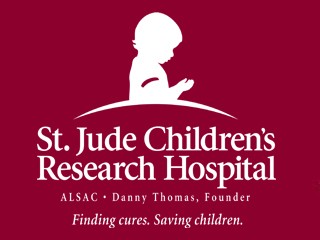
Back in the heyday of Plough, Inc., there used to be giant billboards all over Memphis advertising one of the locally based corporation’s most well-known products. “St. Joseph’s Aspirin,” the signs would proudly proclaim. “Memphis Makes. The World Takes.”
And yes, those billboards and that message did generate a fair amount of pride of place among us locals, even though we knew that St. Joseph, as a brand, would never overtake the industry monolith, Bayer. And, indeed, it never has, though it continues to exist, after a change in geography and ownership, as a low-dose brand, well-advertised online.
In any case, it was something we locals could boast about, in the same way that we once boasted about Holiday Inn, the giant hotel chain that was founded in Memphis and for many, many years run from here. Ditto with AutoZone, which continues to be headquartered in its birthplace, in a handsome downtown building overlooking the mighty Mississippi.
And there is FedEx, yet another Memphis creation that connects the whole wide world with the cargo shipments that come and go from the company’s massive footprint here.
International Paper, another widely known mega-corporation, was born elsewhere and is a transplant to Memphis, but it is nevertheless a major player on our cityscape. And, we’d be remiss not to mention Graceland, home of the the most iconic entertainer ever, and either the first- or second-most visited residence in America, depending on which survey you read.
This list could go on for a while. But there is one other treasure known to those of us who live here and who admire its service to the world: St. Jude Children’s Research Hospital, which is as famous as Sloan-Kettering Hospital in New York and John Hopkins in Baltimore and the Mayo Clinic in Rochester, Minnesota, and may be doing more valuable therapeutic and research work than any or all of those other institutions.
The difference, which we keep discovering every time we ask about it, is that those who direct the marketing affairs of St. Jude have decided it is never to be mentioned or promoted in tandem with Memphis, its host city. And it never is. According to James R. Downing, president and CEO of St. Jude, there are no plans that it ever will be, despite the fact that, as Downing told the Rotary Club of Memphis on Tuesday, the hospital plans a major expansion — one that will connect to affiliates elsewhere but will still have the same headquarters-to-network relationship to them as FedEx Memphis has to its ports and bases elsewhere. For this and the other great benefits St. Jude brings to our fair city, we are most grateful.
But still, it stings a bit that the world-renowned hospital’s hometown never gets a mention in its marketing campaigns. Downing did his best to explain: The hospital is meant to be regarded everyplace at once. It’s a marketing strategy that helps with donors. That may make sense to the marketing department, but not necessarily to Memphians, who understandably swell with pride knowing that St. Jude, as founder Danny Thomas ordained, does its remarkable work here.
We are somewhat comforted by a remark made about the research function of St. Jude by the legendary surgeon Dr. Michael DeBakey: “To cure one child in Memphis is to cure a thousand children worldwide.” As a marketing slogan, it has a certain ring, we think.